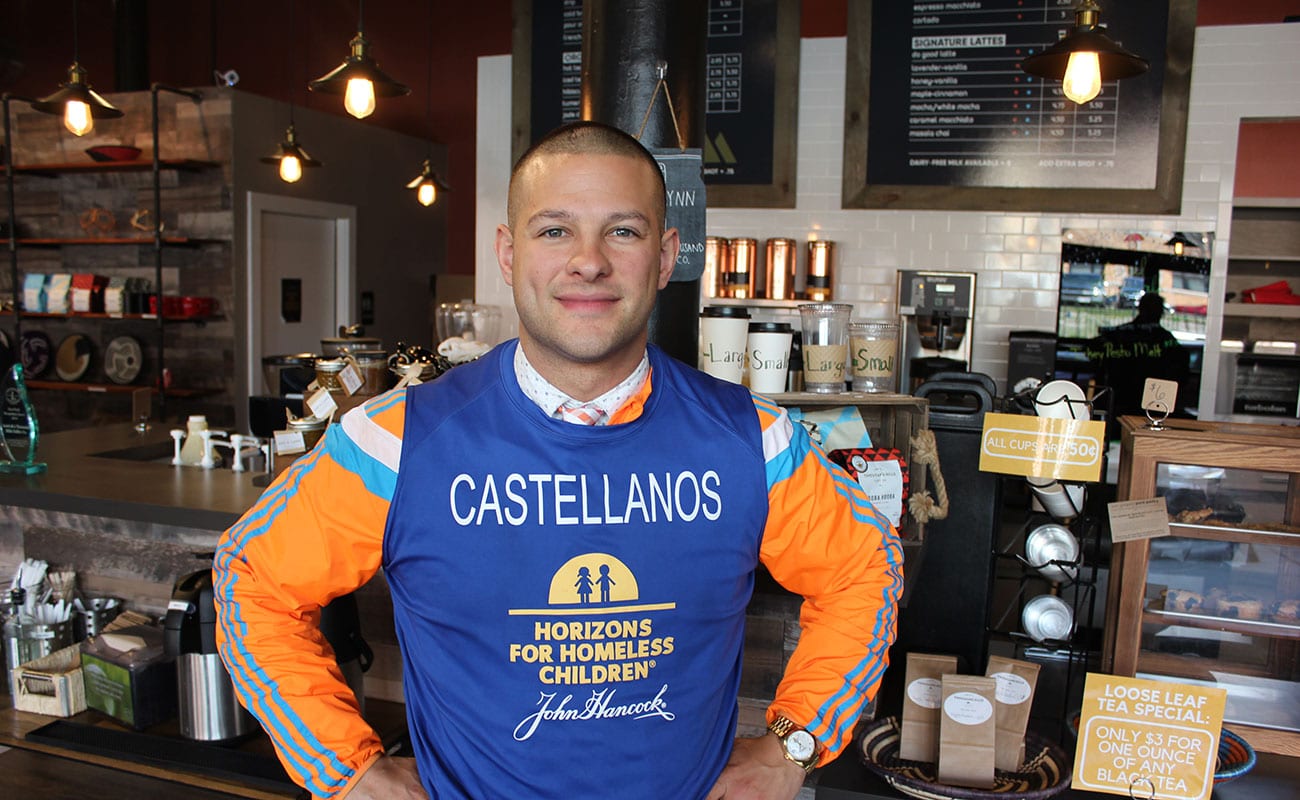Five years ago, Lynn School Committeeman Brian Castellanos was told by a doctor that he’d never walk again.
Monday, he’ll be running in his second straight Boston Marathon.
The trip from Points A to B was obviously an arduous journey, but it has given Castellanos a new appreciation for life — and a real purpose that extends beyond what he’d identified as his hopes and dreams.
His journey actually started in high school. A quiet kid who played football for Lynn English, Castellanos’ homelife was such that for a while, he was living out of his car during his season year — a situation that developed after his brother Eddie, with whom he was living, died of lymphoma.
He conquered that hill and had four successful years as a safety for Framingham State. He seemed on course to achieve his goal of going into law enforcement but then life gave him another hill to climb. On June 3, 2013, his senior season at Framingham, he fell asleep driving back to school and his car hit a wall. He had to be pried out of the wreck with the Jaws of Life, and when he was finally conscious enough to comprehend what had happened, a doctor told him he’d never walk again.
“I’d fractured my femur, broken several ribs, and suffered internal bleeding,” he said. “When I woke up, I had tubes attached to my body, hanging everywhere. I couldn’t feel my left side because there was nerve damage there too.”
His doctor told him that there was an operation that could increase his chances of walking, but it carried with it other risks. Not only that, but even if he could walk, it would only be with the aid of a cane.
“That defeated every idea, every dream I had,” said Castellanos. “Everything got shattered.”
But, he said, it was a real character-building moment for him. First, he decided to go ahead with the surgery.
“I had to sign all kinds of forms and waivers,” he said. “Some of the best doctors in the world said I wasn’t going to be able to walk again. I said I don’t think they know me.”
Perhaps it was the way he dealt with homelessness, or his background as an athlete. But, he said, he vowed that giving up wasn’t an option.
“Preparing for surgery, I called all my loved ones, because there was a chance I might not wake up,” he said. “That’s how risky this was.
“But I did wake up,” he said. “And then, I rehabbed. It was very, very difficult. I was in really bad pain most of the time. I had 158 staples in my leg, and I didn’t sleep for a month.
“I had to learn everything from the ground up,” he said. “I had to learn to put my socks on. My father had to bathe me.
“But most of all,” he said, “I had to learn how to be patient. I’m an energetic, passionate guy, but my bones had to heal.”
Two months before his accident, two terrorists detonated bombs at the marathon finish line.
“It was always a big party on marathon day in Framingham,” said Castellanos. “We’d all go and watch and have a great time. You’d see everybody running by. And then, the bombing happened. I’d always wanted to run it, based on having watched it. But now, I wanted to run it more.”
He said after three months of excruciating rehab work, he took his first independent steps.
“That’s a pretty remarkable thing,” he said. “I guess I attribute it to will power. I just never gave up. I just pushed. I didn’t accept those words ‘you’re ever going to walk again’. It was so emotionally painful, just kept at it.”
Along the way, Castellanos developed another passion: helping kids. He admits he got as far as he did because there were people in place to help him. Now, he wanted to return the favor.
His condition prevented him from going into law enforcement, but not social work. He works for the Wayside Youth and Family Support Network in Framingham as an intensive care coordinator and mobile crisis clinician. And he is running to raise money for Horizons for Homeless Children. The organization, according to the fundraising site, “provides high-quality early education and opportunities for play so children can keep up with their peers.”
During his rehab stint, Castellanos worked with the group, teaching children how to write and spell. The goal is to not let them fall too far behind because of their circumstances.
“There are horrible scenarios these kids are born with,” he said. “I’d go to these shelters and read to these children. They’re less likely to fall through the cracks. You see how they lose their innocence (because of their circumstances).”
As for Monday’s race, he says he’s learned a few things from having run it last year, the biggest being “I’m just going to embrace and have fun,” he said. “Last year I was too focused on what I needed to do.

